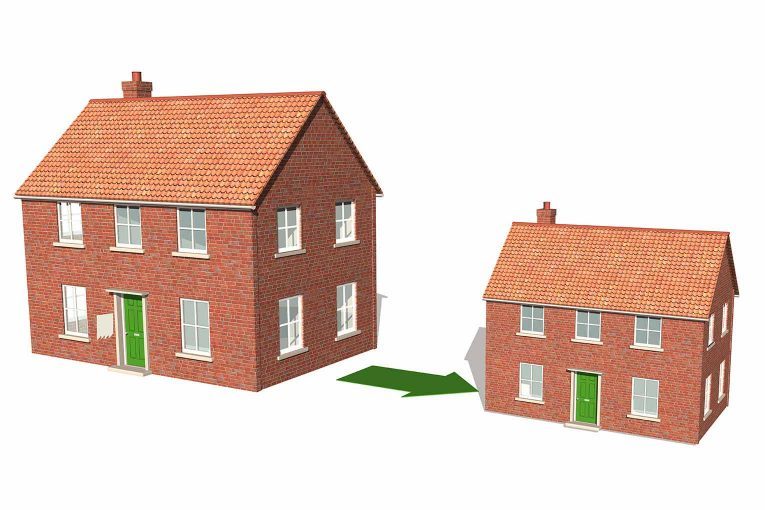Research by stairlift specialist Stannah has found that while 25% of over-55s in the UK have downsized, 59% regret it.
They miss the extra space most (37%) followed by the garden (21%) and the location they left behind (18%) after moving to a smaller property.
62% of older Brits say they have no plans to downsize but Stanch says that feeling like their current home is too big (50%) and the prospect of less maintenance that a smaller home brings (50%) are causing them to think twice.
The research reveals the rise of the ‘Forever Homeowner’ – 42% of over-55s plan to always stay in their current homes. They list location (63%), their age (54%) and the hassle of moving (49%) as their top reasons for wishing to stay put.
28% say they simply haven’t planned for their future housing needs. However, there are ‘Forever Homeowners’ proactively adapting their home – whether they need assistance navigating it now, or down the line. 37% believe their mobility needs take priority, while 40% believe an accessible home can still be a stylish one.
44% of Brits aged 55-64 don’t consider their current home accessible. However, the research indicates that, upon entering our sixties, we make adaptations (as this figure drops to just 35% of those aged over 64). That said, 59% believe they won’t be able to live comfortably in their current home by the time they turn 80.
Despite recognising the importance of home adaptations in supporting their mobility needs, 29% worry that doing so risks lowering the value of their property. Two-fifths (40%) have no clue how much home adaptations even cost.
While over-55s claim they don’t know how much it would cost to make their home accessible, 22% feel they can’t afford to future-proof their home.
Vaila Morrison RIBA, inclusive design specialist for Stannah, said: “Memories associated with home is a powerful force and, as well as not relishing the upheaval of moving, there is an understandably strong desire for people to remain in their current location and within their community. This ‘forever home’ view drives home to me that we need to be thinking about our forever (future) selves.
“Any home improvements we do, we should be thinking about how what we do could make our house work better for our future selves. Oftentimes people end up in a position of making do or have to start thinking about intrusive adaptations at critical point in life, sometimes resulting in barriers coming home after an illness or injury. The earlier we think about inclusive design, the better, which can only be a good thing for helping make our homes more welcoming for older or disabled friends and family too.”



